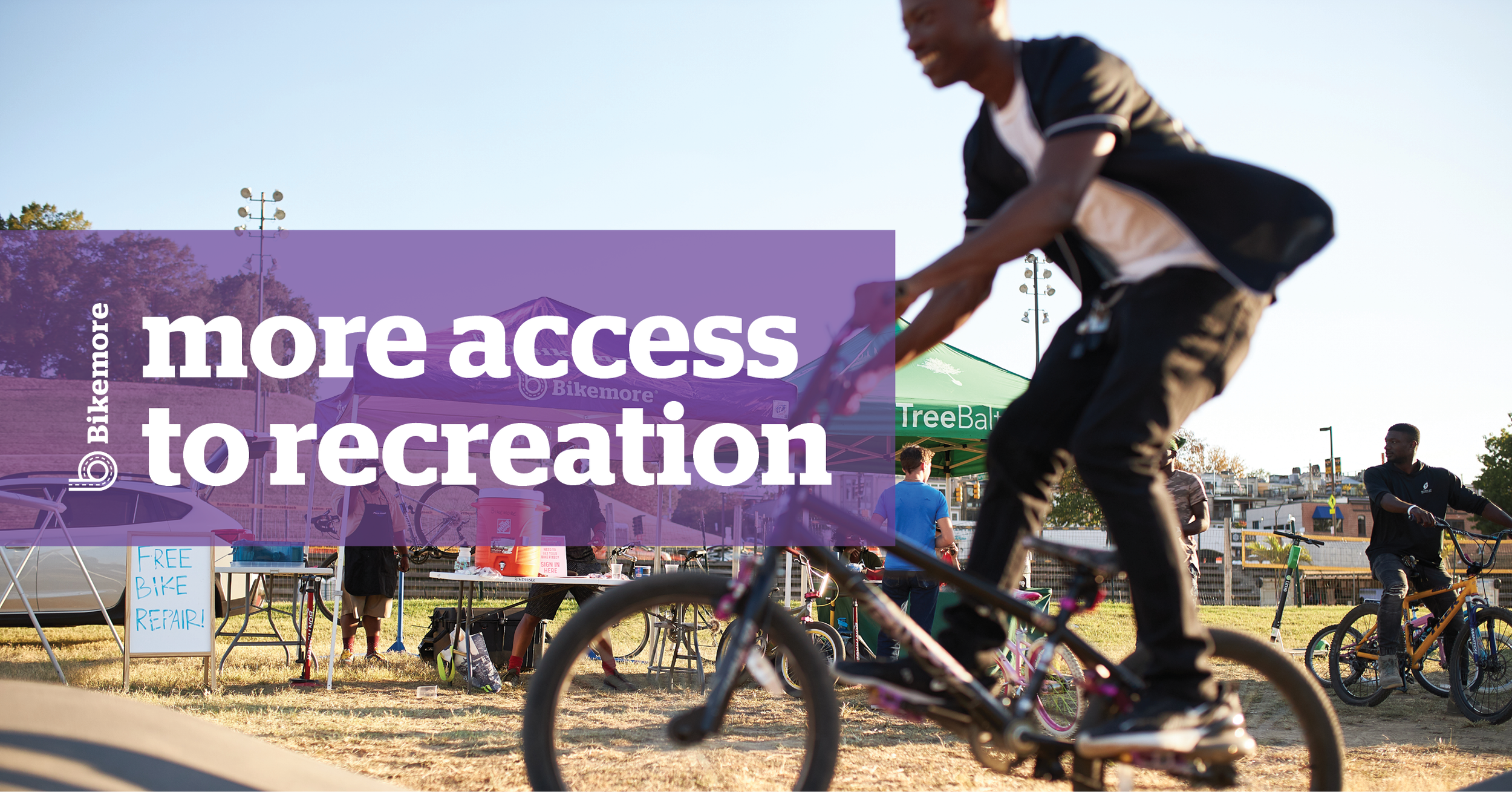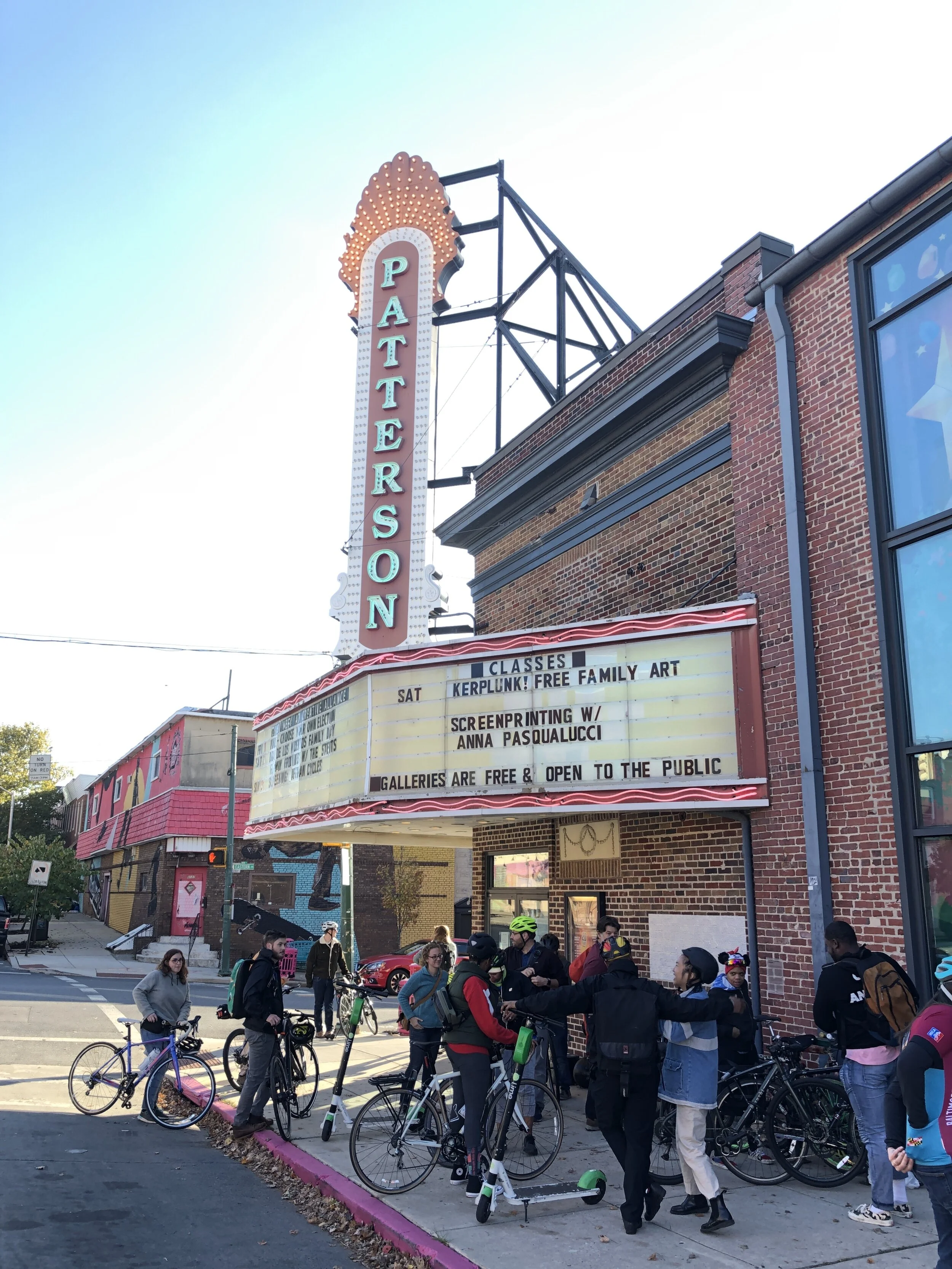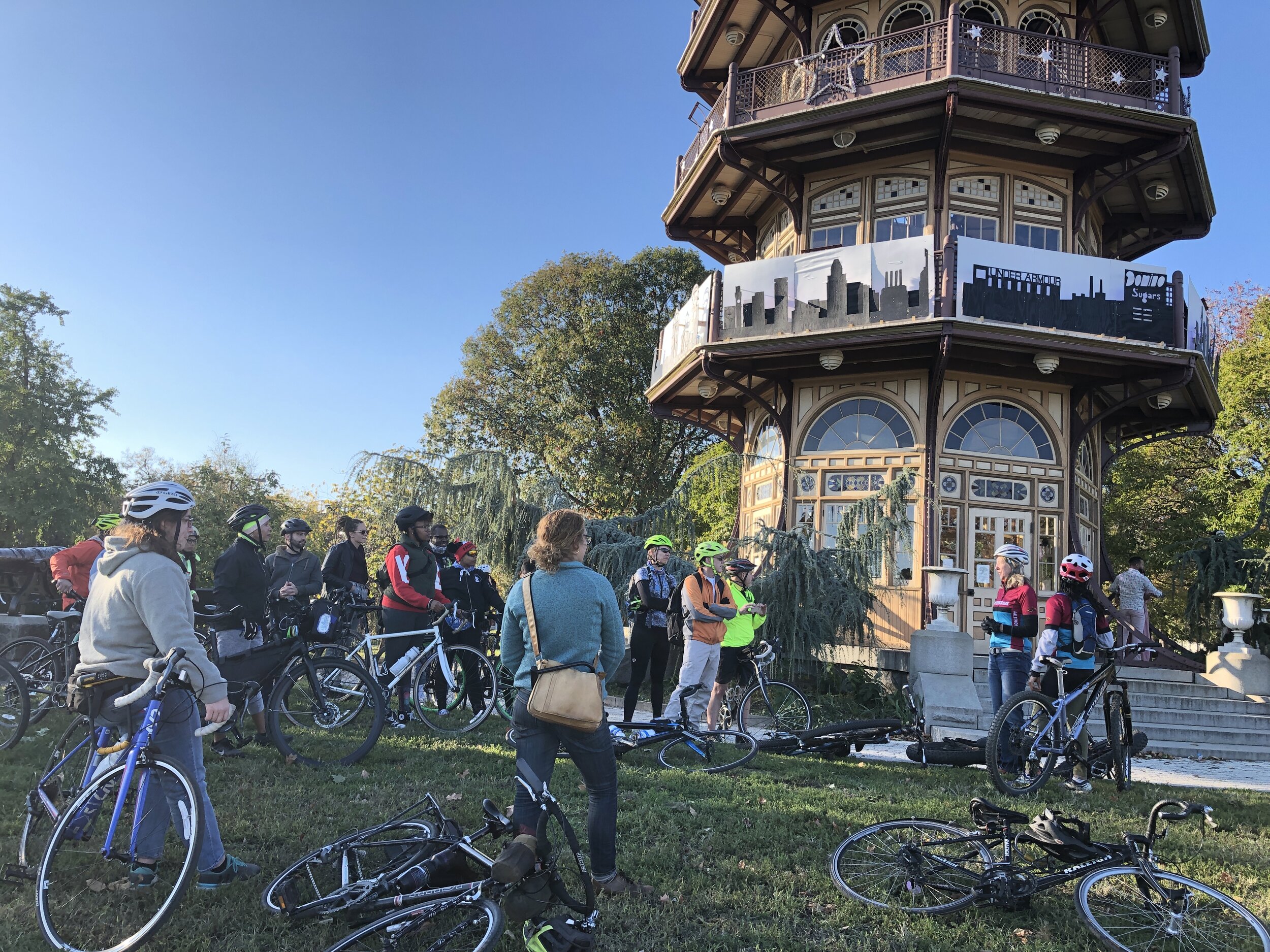At the pump track we’ve seen a little girl riding a scooter with her mom nearby, a teenager learning how to ride a bmx bike, a bike commuter stopping by on his way home from work, and a skateboarder trying new moves. They were all curious and excited to ride. They shared the space, gave each other pointers, and laughed together when one of them fell. Access to recreation in public spaces brings people together. It gives people a chance to exercise, meet new people, feel like you have ownership of public space. It builds community, and helps us together build the neighborhoods that we want to live in.
And that’s one of the reasons we were so excited that this fall, Baltimore Rec and Parks purchased a modular pump track that can be placed in neighborhoods across the city. A pump track (pictured below) is a circular track with dips in it. Once you get the hang of it, you can pump your bike up and down for momentum and ride it without a lot of pedaling. It’s fun to ride on a bmx bike, skate board, or scooter and we’ve seen people of all ages on it.
Over the years, we’ve heard communities asking for a pump track. We’ve been working with Councilman Pinkett for two years to identify properties and funds to build one, and in January of 2019 we worked with South Baltimore Gateway Partnership to study the viability of building one in South Baltimore.
But when Molly Gallant from Rec and Parks proposed the idea of purchasing a modular pump track, we knew this would open up opportunities. By having a pump track that could be easily moved between various locations, it meant that communities across the city could have access to it, and it meant we can try out locations, gauge the response, and build support for a permanent one. It meant that it would be a tool to connect with neighbors across the city.
Momentum from our study, Councilman Pinkett’s support, along with a lot of leg work by Molly and her team laid the groundwork for Bikemore to be able to advocate for the City to purchase the pump track. It was first installed on Rash Field during the National Recreation and Parks Association conference in September and was an instant success. We hosted three Mobile Bike Shops next to it that week, and it got a ton of use. In late October the pump track was moved to in Easterwood Park, and at the opening celebration it was welcomed by more than 40 skateboarders and bike riders.
We’ve demonstrated the success of an investment like this, and of what Bikemore’s partnership with city departments can look like.
Building a city for people means creating spaces where people can come together. All City agencies have a role to play in building a city for people not just cars. A large part of that is ensuring that the spaces where people are most likely to ride a bike for the first time, like a city park, have the resources they need to deliver high quality programs. When you make a donation to Bikemore you increase our ability to advocate for City agencies, like Rec and Parks, to get more people on bikes and to build a city for people.
Create more access to recreation by donating to Bikemore today.
Make a Direct Action Donation (501c4)
Direct Action donations are our greatest need. They can fund everything we do, including directly lobbying elected officials, running grassroots organizing campaigns, and advocating for or against legislation. They are not tax-deductible.
Make a Charitable Donation (501c3)
Charitable donations fund our education, organizing, and programming, and may be tax-deductible.


























